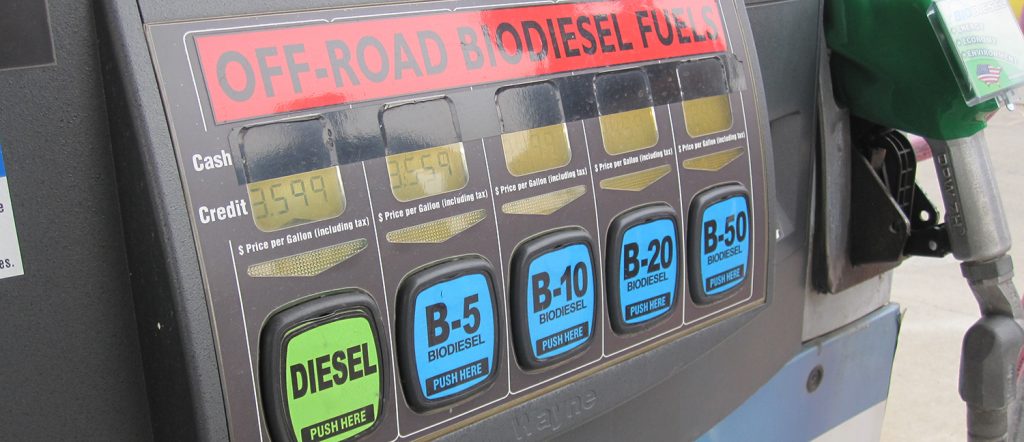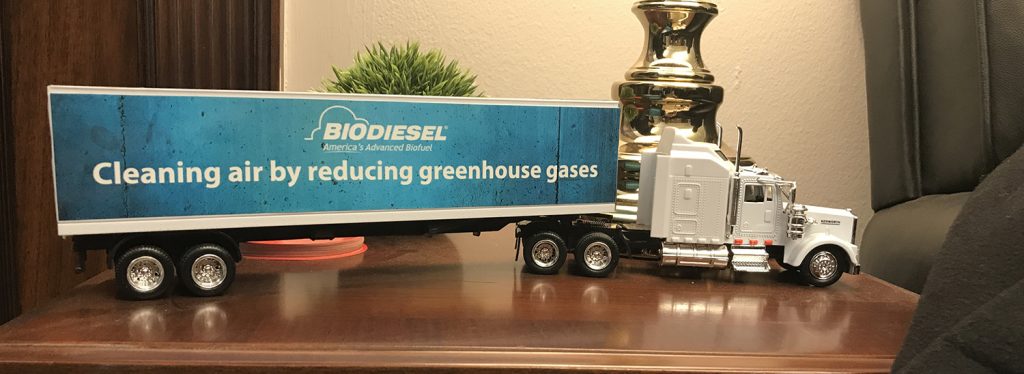The Minnesota Soybean Growers Association (MSGA) was among twenty four state and national trade associations representing soybean growers and biodiesel producers that delivered a letter to President Donald Trump Dec. 18, asking that he direct the U.S. EPA to do more in the 2020 Renewable Fuel Standard final rule to repair the harm done by small refinery exemptions.
The associations write in the letter: “EPA’s small refinery exemptions dealt a severe blow to the biodiesel industry; the agency should therefore help the industry recover. The industry is capable of continued sustainable growth of several hundred million gallons every year. We ask that you direct EPA in the forthcoming final rule to expand the requirement for biomass-based diesel for 2021 and include the best estimate of exempted gallons, based on an average of actual past exemptions.”
The EPA granted 85 small refinery exemptions for 2016, 2017 and 2018, exempting more than 38 billion gallons of petroleum fuel from the RFS requirements. The exemptions destroyed demand for more than 4 billion gallons of renewable fuel—including biodiesel and renewable diesel—which undermines demand for soybean oil and price support for soybeans. Ten biodiesel producers have closed or slashed production due to the loss of demand.
“The reality is that farm income this season is still one-third below what it was in 2013,” the associations write. “Soybean prices and sales continue to fall due to the market disruptions. EPA’s proposal for the 2020 RFS and estimate of small refinery exemptions is not a strong enough signal to the crop market. Increased biodiesel and renewable diesel production could help put the soybean market back on track by adding significant value—around 11 percent—to every bushel of soybeans.”
“The EPA must ensure that the biomass-based diesel volumes set in annual rules are fully met,” says National Biodiesel Board vice president of federal affairs. “The agency should include in the annual standard the best estimate of future exemptions, based on an average of the 38 billion gallons exempted over the past three years. But the agency can do more to help the industry rebuild and support markets for U.S. agriculture. EPA should include increased volumes for advanced biofuels and biomass-based diesel.”
Recognized by the EPA as the first advanced biofuel in the industry, biodiesel supports nearly 60,000 jobs nationwide and more than 5,000 jobs in Minnesota alone, and contributes nearly $1.7 billion toward Minnesota’s economy. Biodiesel is also an environmental winner, reducing greenhouse gas emissions by more than 50 percent.






